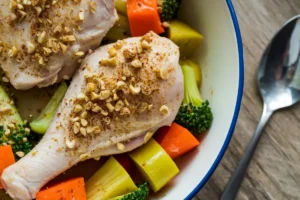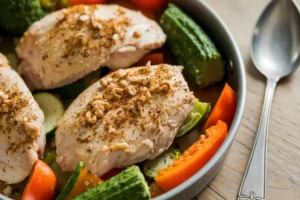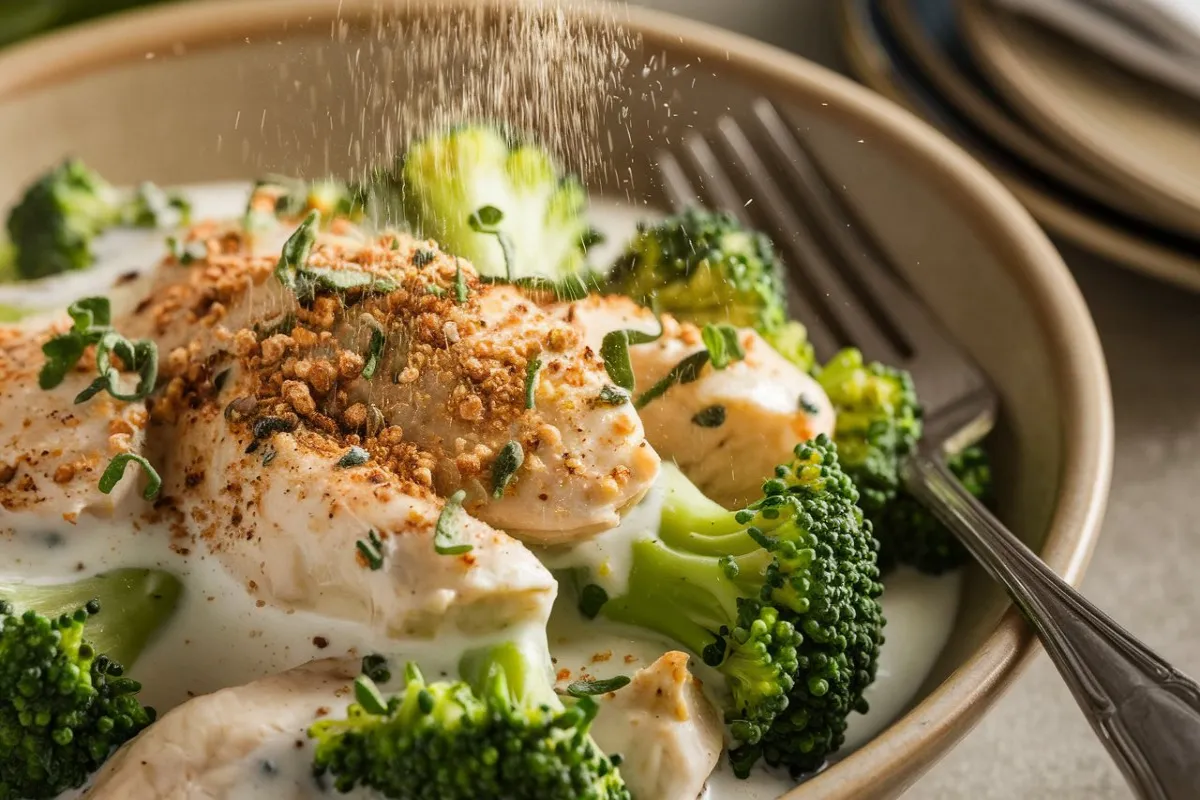Introduction: Understanding GERD and the Role of Diet
Gastroesophageal reflux disease (GERD) is a chronic digestive disorder where stomach acid frequently flows back into the esophagus, leading to symptoms such as heartburn, chest pain, regurgitation, and sometimes difficulty swallowing. One of the most important aspects of managing GERD is maintaining a diet that minimizes acid reflux triggers. Garlic is a common ingredient in many dishes, prized for its flavor and potential health benefits. However, for those suffering from GERD, garlic can be a double-edged sword. This guide explores whether garlic powder is a suitable alternative for those managing GERD and provides a deeper understanding of how this spice can impact your condition.
The Connection Between Garlic and GERD
Why Garlic Can Trigger GERD Symptoms
Garlic is known for its strong aroma and flavor, which is due to its high concentration of sulfur compounds, particularly allicin. While these compounds contribute to garlic’s many health benefits, they can also relax the lower esophageal sphincter (LES), the muscle responsible for keeping stomach contents from flowing back into the esophagus. When the LES relaxes, it can allow acid to escape, leading to the symptoms associated with GERD.
Additionally, garlic may increase gastric acid production, exacerbating symptoms in those who already suffer from acid reflux. Fresh garlic is particularly potent, which is why many GERD sufferers find it to be a strong trigger.
Is Garlic Powder a Better Option?
Garlic powder is made from dehydrated garlic that has been ground into a fine powder. The drying process can reduce some of the compounds that contribute to fresh garlic’s strong effects on the digestive system. As a result, some people with GERD may find that garlic powder is less likely to trigger symptoms compared to fresh garlic. However, this is not a guarantee, as individual responses to garlic powder can vary.
Garlic Powder vs. Fresh Garlic: Which is Better for GERD?

Nutritional Differences
One of the primary differences between garlic powder and fresh garlic lies in their nutritional content. Fresh garlic contains more allicin, which is released when the garlic is chopped or crushed. This compound is responsible for many of garlic’s health benefits, including its antimicrobial properties and potential cardiovascular benefits. Garlic powder, on the other hand, contains less allicin due to the drying process.
For individuals with GERD, the lower allicin content in garlic powder may be beneficial, as it might not be as potent in triggering reflux symptoms. However, it also means that some of the health benefits associated with fresh garlic may be reduced.
Flavor and Usage in Cooking
Garlic powder offers a milder flavor compared to fresh garlic, which can be advantageous for GERD sufferers who need to limit strong flavors that could exacerbate symptoms. It is also more convenient to use in cooking, as it can be easily measured and doesn’t require peeling or chopping.
However, it’s important to note that even garlic powder should be used in moderation if you have GERD. Overuse of any garlic product, fresh or powdered, can still lead to symptoms. Therefore, it’s crucial to monitor your intake and adjust based on how your body responds.
Managing GERD: Dietary Adjustments and Alternatives
Identifying and Avoiding Trigger Foods
One of the best ways to manage GERD is to identify and avoid foods that trigger your symptoms. In addition to garlic, other common triggers include:
- Citrus fruits (e.g., oranges, lemons)
- Tomatoes and tomato-based products
- Spicy foods
- Chocolate
- Caffeine
- Alcohol
- Fatty and fried foods
It’s important to keep a food diary to track what you eat and how it affects your symptoms. This can help you pinpoint specific triggers and make informed decisions about your diet.
Healthy Substitutes for Garlic in GERD-Friendly Cooking
If garlic, even in powder form, continues to trigger your GERD symptoms, there are several alternatives you can use to flavor your food without exacerbating your condition:
- Herbs: Basil, oregano, thyme, and parsley can add flavor to your dishes without the risk of triggering GERD.
- Spices: Ginger is a great option as it has anti-inflammatory properties and can aid digestion.
- Garlic-Infused Oil: This can provide the flavor of garlic without the solids that might trigger symptoms. However, use it sparingly.
- Shallots or Chives: These have a milder flavor than garlic and may be less likely to cause reflux.
The Science Behind Garlic and GERD

How Garlic Affects Digestion
Garlic has long been recognized for its health benefits, including boosting the immune system and reducing blood pressure. The sulfur compounds in garlic, particularly allicin, play a significant role in these effects. However, these same compounds can irritate the stomach lining and relax the LES, making it easier for stomach acid to escape into the esophagus.
Studies have shown that garlic can increase the production of stomach acid, which is problematic for GERD sufferers. When stomach acid is overproduced, it can overwhelm the LES, leading to acid reflux. This is why even garlic powder, which has a lower concentration of allicin, should be consumed with caution.
Research Findings on Garlic and GERD
Research on the specific impact of garlic on GERD is limited, but there are studies that highlight the effects of garlic on digestive health. Some research suggests that garlic’s ability to relax the LES makes it more likely to cause acid reflux. However, the extent of this effect can vary depending on the form of garlic consumed (fresh vs. powdered) and individual tolerance.
A study published in the journal Digestive Diseases and Sciences found that certain foods, including garlic, can trigger GERD symptoms in susceptible individuals. However, the study also noted that individual responses vary, emphasizing the importance of personalized dietary choices in managing GERD.
Practical Tips for Including Garlic Powder in a GERD-Friendly Diet
Moderation is Key
If you enjoy the flavor of garlic and want to include it in your diet, using garlic powder in moderation may be a viable option. Start with small amounts and gradually increase if you find that it doesn’t trigger your symptoms. Pairing garlic powder with GERD-friendly foods, such as lean proteins and non-acidic vegetables, can also help minimize the risk of reflux.
Cooking Techniques to Reduce GERD Symptoms
How you prepare your food can also impact GERD symptoms. Here are some cooking techniques that may help:
- Baking or Grilling: These methods allow fats to drip away from the food, reducing the likelihood of triggering GERD symptoms.
- Steaming: This gentle cooking method preserves nutrients and is less likely to cause irritation to the digestive system.
- Using Low-Fat Ingredients: High-fat foods can relax the LES, so opt for low-fat versions of dairy, meats, and other ingredients.
FAQs About Garlic Powder and GERD
1. Can garlic powder cause heartburn?
Yes, garlic powder can cause heartburn, especially if consumed in large quantities. Although it is less potent than fresh garlic, it still contains compounds that can relax the LES and increase stomach acid production, leading to heartburn.
2. Is garlic-infused oil a safer option for GERD?
Garlic-infused oil can be a safer option because it provides the flavor of garlic without the solid particles that may trigger GERD symptoms. However, it should still be used in moderation, as oils can also affect the LES.
3. Are there any garlic supplements that are safe for GERD?
Garlic supplements are available in various forms, including tablets and capsules. However, these supplements often contain concentrated amounts of garlic, which can trigger GERD symptoms. It’s best to consult with a healthcare provider before using any garlic supplements if you have GERD.
4. What other foods should I avoid if I have GERD?
In addition to garlic, other foods to avoid include citrus fruits, tomatoes, chocolate, caffeine, alcohol, and spicy foods. Each of these can exacerbate GERD symptoms by increasing stomach acid or relaxing the LES.
5. Can I eat garlic if I take medication for GERD?
If you are taking medication for GERD, you may still need to avoid garlic if it triggers your symptoms. Medications like proton pump inhibitors (PPIs) and H2 blockers can reduce stomach acid, but they do not prevent the LES from relaxing in response to certain foods like garlic.
Conclusion: Is Garlic Powder OK for GERD?

The question of whether garlic powder is suitable for those with GERD doesn’t have a one-size-fits-all answer. While garlic powder is less likely to cause symptoms than fresh garlic due to its lower allicin content, it can still trigger acid reflux in some individuals. The key to managing GERD is to monitor your body’s response to various foods and adjust your diet accordingly.
For some, small amounts of garlic powder may be tolerable and allow them to enjoy the flavor of garlic without significant discomfort. For others, it might be necessary to avoid garlic altogether and seek out alternative seasonings. As with any dietary changes related to GERD, it’s important to consult with a healthcare provider to develop a personalized plan that addresses your specific needs.
Incorporating garlic powder into a GERD-friendly diet requires careful attention to portion sizes and preparation methods. By following the tips outlined in this guide and being mindful of your symptoms, you can continue to enjoy flavorful meals without compromising your digestive health.

